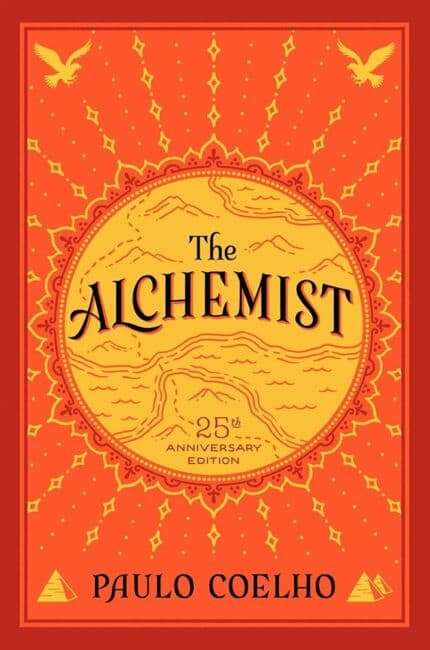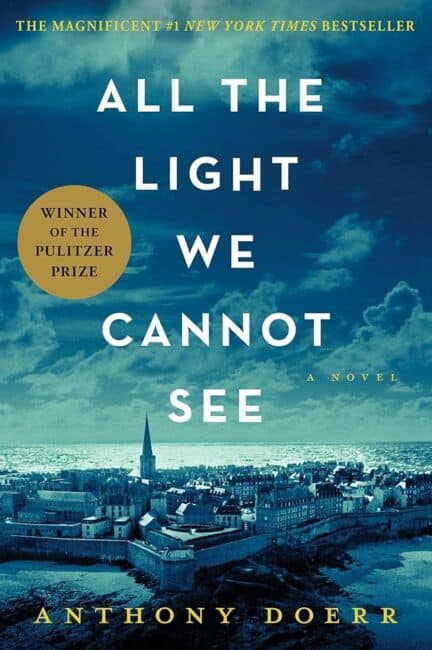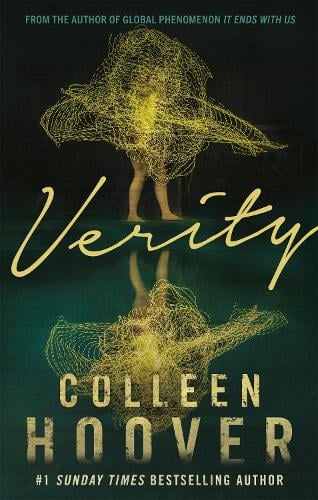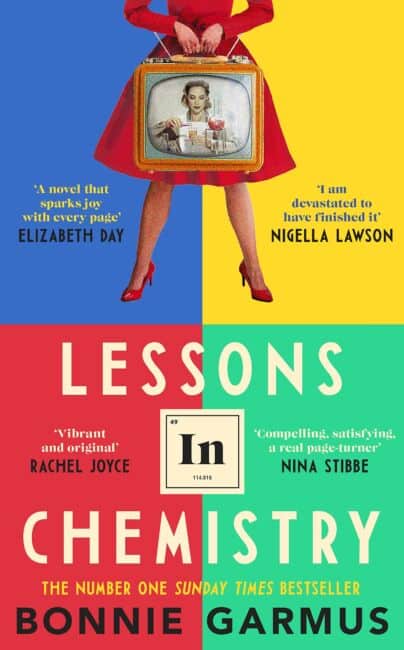The Alchemist
Paulo Coelho
Paulo Coelho’s The Alchemist has been dividing audiences since it was published in 1988 – it’s a work that readers either love entirely or completely despise because it relies heavily on a fable narrative. Now, it’s always the case with fables that they either reach out to you or push you away. Whatever the critical response, the book has been read more than 62 million times
Note: This book review contains spoilers.
The novel centres around a Spanish shepherd boy called Santiago who lives a simple, relatively contented life in Andalusia. He tends to his flock and cycles through a daily and seasonal routine but is troubled by a recurring dream of treasure. He eventually goes to see a fortune teller who tells him that the dream is a sign of his “Personal Legend” – essentially his individual destiny – and that it’s revealing that he’ll find treasure at the pyramids in Giza.
Santiago sells his sheep, sets off with his earnings, and, in a roundabout way, completes his quest to find treasure in Egypt. The final “treasure” here being, of course, realising the value of his original shepherd life at home.
“For me, Paulo Coelho’s The Alchemist falls into a category with The Little Prince and The Prophet. People love to love (and live life by) those books, but they all have a similar feel and point and it’s totally not what I enjoy in a book.”
- Devon Trevarrow Flaherty
The core philosophy of the story is that everyone has a personal legend and that the goal of a good life is to find your own destiny and live it out. On the surface, this feels like a fairly agreeable way of looking at the world: find your passions, pursue them, live a happy life.
But this isn’t really urging readers to follow their passions – Santiago is simply looking for treasure. It’s instead urging readers to “find” their pre-written destiny and live it through like, well, a character in a book. And here comes one of the most-quoted passages: “When you really want something to happen, the whole universe will conspire so that your wish comes true”.
This classic idea of “manifest destiny” is not only at odds with the idea of destiny in the first place (i.e. a destiny has to be pre-written, so you willing it wouldn’t make any difference) but also implies a failure of morals or willpower on the part of people who haven’t found their “personal legend”. In other words; if you’re poor, it’s because you haven’t found your personal legend and willed the universe enough to change around you. Or perhaps you’re poor because it’s your personal destiny, so tough luck!
There’s no problem with “manifesting” in principle: you set your sights on a dream, you imagine what it’ll be like to realise that dream, and you use that feeling to motivate you to do everything possible to achieve that dream (with an added dose of good luck). But, again, this isn’t about realising dreams and passions, it’s a fine enough adventure story that keeps hitting you over the head with what you’re supposed to think.
What’s more, many reviewers have pointed out the injustice of only Santiago and his friends having a personal legend. He is the main character of the novel, so some leeway can be given for that, but it’s a shame that the female characters in the book only seem to exist in service of Santiago’s destiny.
“For anyone who reads not only to escape reality but also to understand reality, The Alchemist can offer the best of both worlds.”
- The Guardian
The narrative is fine, it’s a relatively easy read and a relatively short book, but the core issue is precisely that it ends up exactly where it started.
Its greatest failure is that it attempts to straddle multiple forms without necessarily mastering any one of them – in much the same way as Iain Reed’s novel. It straddles adventure story and philosophy, but both end up lacking because the adventure only serves to act as a vehicle for the philosophy and the philosophy remains surface level because it doesn’t need to be any deeper to justify the adventure (at least for the purposes of the book).
With all that said, it still remains a book worth reading (if it only teaches you more about what you don’t like in a book). A good holiday read that doesn’t need you to trawl through reams of footnotes to follow along.
Want more book recommendations?
If you’re looking for a short philosophical novel, Jean Giono’s The Man Who Planted Trees is a real masterpiece. Or, why not check out our latest reviews for some top-rated fiction to sink your teeth into?

| ISBN | 978-0062390622 |
|---|---|
| Pages | 208 |



